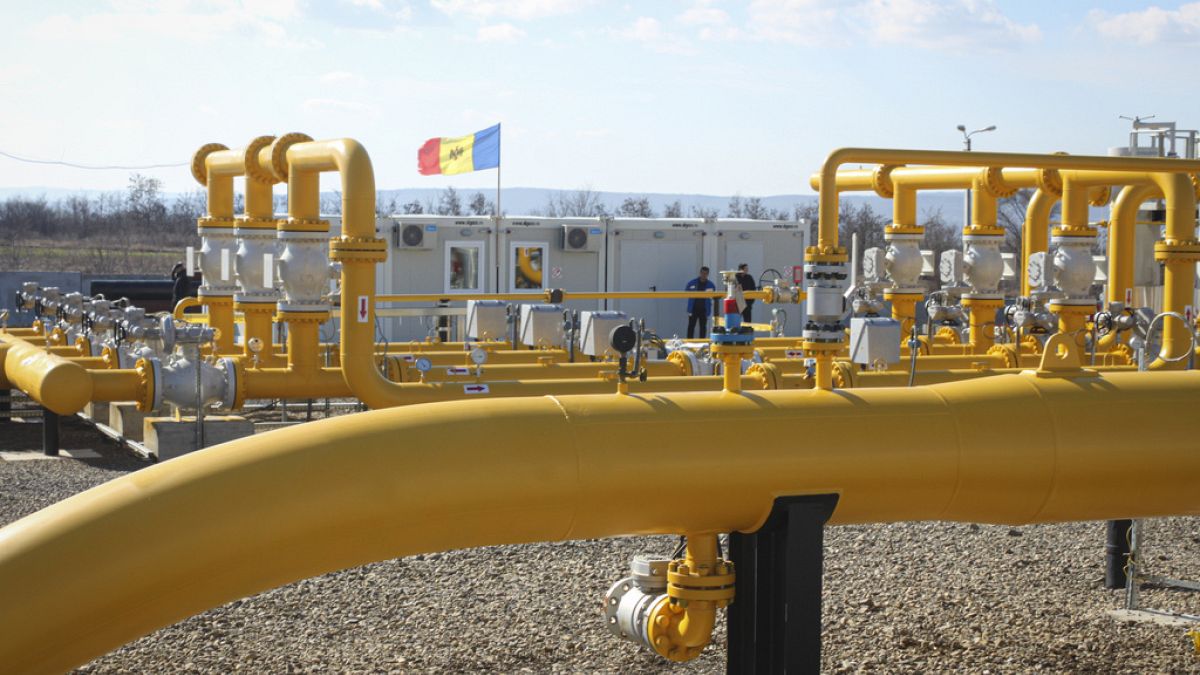France is building an alliance of pro-nuclear states to advocate for expanding nuclear power in the bloc.
EU energy ministers are meeting on Monday and Tuesday (27 and 28 February) to discuss issues ranging from security of supply to the upcoming electricity market reform.
But on the sidelines, French energy minister Agnes Pannier-Runache has invited 12 other countries on Tuesday to discuss a “nuclear alliance.”
“I would like to remind you that nuclear power represents 25 percent of European electricity production”, said Pannier-Runache. “It will be one of the important low-carbon energy sources next to wind and solar power that will help us achieve carbon neutrality.”
She later explained that the meeting would be an occasion to discuss “research, supply chain and nuclear waste issues.”
Countries in attendance include traditionally pro-nuclear members Romania, Bulgaria, Slovakia, Czech Republic, Hungary, Poland, Slovenia and Finland. Newly-joined Croatia, plus the Netherlands, Italy and Sweden will also attend.
It is the latest move in an ongoing spat with Germany which is phasing out nuclear power and whose negotiators have stressed nuclear electricity should not be equated to electricity derived from solar and wind.
Other countries not attending the meeting include Belgium and Luxembourg, whose energy minister Claude Turmes said nuclear power “is very slow.”
“It takes 12 to 15 years to build a new nuclear facility,” he said. “If we want to win the race against climate change, we need to be fast.”
The French meeting follows intense French lobbying to include nuclear power in a recent EU Commission rules for green hydrogen, which is made with electricity derived from wind and solar but now also allows nuclear power as energy source.
Electricity market reform
Another item high on the agenda is the EU’s electricity market reform. The commission pledged reform after last year’s Russian gas cut-off sent power prices skyrocketing.
European energy prices are set through a so-called marginal pricing system in which the most expensive power plant called on to meet demand on any given day sets the wholesale electricity price for all suppliers.
This means gas-fired power stations, which are still needed to keep the lights on in many countries, tend to dictate the electricity price for the rest of the market, even though renewable power can be produced more cheaply.
Greece, Spain and France are all pushing for deep reform based on long-term, fixed-price contracts with power generators, which are less adaptive and flexible but could safeguard against massive price rises.
But a group of seven countries led by Germany oppose deep reform and have warned against changing the system too rapidly. “It is thanks to the common energy market that we arrived out of the crisis with limited damage,” said German climate action minister Sven Giegold on Monday.
Giegold also said prices are best brought down by using less energy and increasing investment in renewables.
Although Germany also supports long-term contracts with power generators, he said these contracts should be “voluntary” and not fixed as France and Spain propose.
Pannier-Runacher said on Monday France aims to agree on the reform before the European elections. But on this Berlin also disagrees, preferring to push through the reforms until after the elections in May 2024 instead.
The commission will present a reform proposal on 16 March.




















Discussion about this post